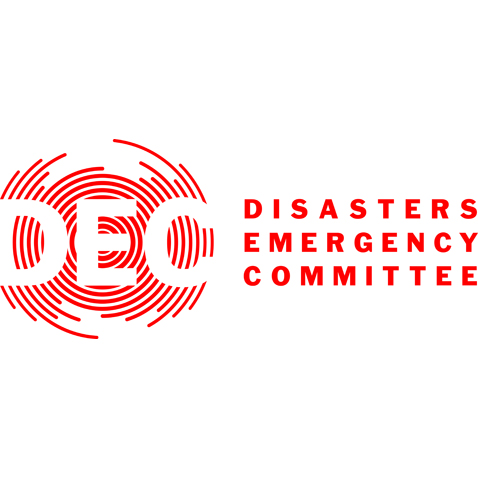Categories
A completed entry will include:
1. Entry Payment
2. Entry Form
3. 1000 Word Submission
4. Company Logo
5. UK contact details
READ MORE ON HOW TO ENTER
SUBMIT YOUR ENTRY
2025 WINNERS & SHORTLISTED
1. Pro Bono Company of the Year
If your organisation has given its time and expertise freely to a defined cause or activity then you should consider entering this category. Whether your services were given directly or through a charity organisation, this award recognises the dedication of you and your staff in helping others. The judges will be seeking evidence of successful outcomes and at least a nominal value of the work pledged. Please note, this is for pro bono work only and is not for fundraising or similar activities. Examples could be in law, media or consultancy.
2. Corporate Volunteer Programme of the Year
This award recognises companies that have successfully embedded a volunteer programme for employees that helps to deliver impact for a charity or community-based organisation. Successful entries will be able to show the take-up amongst staff and provide feedback on how the opportunities have been beneficial for both employees and the organisation involved. Companies must outline why the selected charity/organisation was chosen and provide details on how this programme forms part of the company’s wider CSR strategy.
3. Employee Wellbeing Award
This category is designed to celebrate companies that have implemented employee wellbeing initiatives for staff. Entries must be able to use data to show why the initiative was established and how this has been/is proving to be beneficial for staff. The winner will be able to showcase a holistic commitment to wellbeing across multiple areas of the organisation, rather than one singular incentive alone.
4. Best Scheme to Encourage Staff Fundraising
This award will go to the organisation that has done the most to help raise funds for a cause by encouraging participation from its staff. This could be a single campaign for a charity and is more about the scheme than the monies raised (although the submission should also detail this of course).
5. Consultancy of the Year
This category is open to specialised consulting companies and fundraising consultants that have a track record of advising charity and not-for-profit organisations or working in sustainability or diversity. Without breaching confidential agreements, we would like to see evidence of how an organisation has changed or restructured due to the advice given or create effective campaigns with results, and the positive impact of this. The judges will expect to see figures as well as strategic information.
6. Philanthropy Award
An award designed to recognise organisations and individuals that have made significant commitments to a project, charity or enterprise – usually in the form of a grant to, or formation of, a foundation.
7. Impact Company of the Year
This award is for demonstrable impact as a part of normal business. For example, creating sustainable supply chain or ensuring ethical practices throughout the operations. Entries can be of direct impact or via investment practices. The judges will seek evidence of the scale of impact relative to the size of organisation and of ongoing commitment rather than a single event, creating a lasting and change.
8. Equity, Diversity and Inclusion Award
Awarded to an employer or organisation that has made concerted and effective steps to ensure their workplace, employment practices and recruitment policies are fair, equal and inclusive of all. Judges will be looking for companies that have reached inclusion goals by identifying areas of under-representation amongst staff and/or clients, customers or beneficiaries and are making a difference. Clear and quantifiable data will need to be shown to demonstrate active efforts in areas including but not restricted to, gender, disability, LGBTQI+ and black and minority ethnic under-representation.
9. ESG Finance Award
This award is for financial organisations that are helping to open up responsible finance either by providing finance for ESG projects or changing their investment strategies to reduce damaging impact. This category is open to finance providers, brokers, and in-house teams. Open to banks, building societies, insurers, providers of financial services to consumers. The judges will want to consider the ethical way in which the organisation conducts its business in all areas, but will especially want to be appraised of the way in which it is providing ethical finance. Judges will seek evidence of a real appreciation of the issues, as well as an overall ethical approach.
10. Commitment to the Local Community Award
This award is for companies that have actively aided and engaged with their local communities in a specific geographical area. The judges will look beyond financial support to consider how an organisation’s resources have been deployed to create long-lasting impact.
11. National Commitment to the Community Award
This award is for companies that have helped communities across the country, actively aiding and communities in national programmes. The judges will look beyond financial support to consider how an organisation’s resources have been deployed to create long-lasting impact.
12. National Commitment to Skills & Training
Skills and training are vital to help both business and individuals progress and develop. This category has emerged from the good work done by all types of commercial organisations to help provide secure futures for people, whether it be in the form of apprenticeships, grants, training in-house of wider community projects. This is a broad category to recognise the importance of development in creating a fair and productive society.
13. Partnership with a Children Charity
For corporate partnerships with children’s charities, the entry should detail how the company has helped the charity achieve its aims. The onus in on the corporate support that has been given, and judges wish to see evidence of real long-term commitment to a project.
14. Partnership with a National Charity
This is where a corporate partner has taken a lead in helping a national charity achieve its aims. Judges will look for alignment of targets, commitment and contributions that go beyond the purely financial to result in mutually outstanding results.
15. Partnership with a Local Charity
This category is for corporate partnerships with local charities, whereby a company has collaborated effectively with a local charity to help create demonstrable change within the local community. As with the other categories, judges will be looking for an alignment of values and targets and a demonstrable commitment to creating lasting change within a community. The partnership should demonstrate a commitment and contributions that go far beyond financial results.
16. Partnership with a Health Charity
Health includes research or care, physical or wellbeing – but as one of the most important issues facing the nation, the judges will be trying to find examples of a corporate partnership that demonstrates commitment above just financial, with results that can be measured.
17. Partnership with an International Charity Whether the corporate partner is national or international, the partnership must have international effect, with the results helping people or causes across borders. As with all the partnership categories, the judges want to see support that is comprehensive and at a deep level.
18. Partnership with an Environmental Charity
Entries to this category must be able to demonstrate how a partnership with an environmental charity shows an alignment on values and an impact on the charity involved and the wider environment. Judges will be looking for quantifiable data that can demonstrate value and growth in the partnership and the impact the partnership has on wider CSR goals.
19. Partnership with an Advocacy Charity
This category recognises companies that have established a partnership with a campaigning/advocacy charity. The partnership must demonstrate an alignment on values and showcase how the input of your company is helping to provide impact for the mission the charity is trying to achieve. All entries must use clear data to demonstrate impact.
20. Carbon Reduction or Offset Programme of the Year
This award is for organisations that have made significant voluntary progress in reducing carbon emission and/or create effective programmes for off-setting their carbon footprint. Entries can be from businesses that are helping to tackle the issues of emissions of carbon dioxide through actual reduction of emissions, through providing finance to off-setting or by using in-house schemes to compensate (such as renewable energy and forestry projects). The category is also open to organisations that provide off-setting services. Evidence (preferably audited independently) of scale, the resources available to the organisation, benchmarks to the standard for the sector and all relevant programmes of reduction should be included.
21. Circular Economy Award
This category is both for waste reduction programmes and recycling projects that can dramatically cut the waste in an organisation and help reduce need of replacement through re-use, and for organisations that are creating products that can be recycled and reused to reduce overall waste.
22. Workplace Sustainability Award
This award is for organisations that have made significant voluntary progress in helping protect the environment, through carbon reduction, offset, energy efficiency, waste recycling and reduction and recycling within the workplace. Both specialised companies and internal programmes are both worthy of entry, as are companies providing finance to off-setting or by using in-house schemes to compensate (such as renewable energy and forestry projects) The judges will want to see strategy, long-term vision and evidence of success.
23. Major Project of the Year
This award is to be given to a single event, campaign or launch rather than ongoing operations, so an example would be help in a crisis (i.e. plugging funding, donating office space for DR etc) or a single campaign that created immediate change. The size and impact will be judged relative to the size of organisation or organisations.
24. Communication and Education Award
This category is for the best scheme to inform and educate on matters of health, charity, environmental or social benefit. Both internal and external communications, as well a combined communications, will be considered. Examples could be education on saving energy or transmitting a message about health awareness. Judges will want to see clear messages being conveyed, and actual samples of the communications as well as a description of the strategic plan and reasoning.
25. Tech for Good Award
This award honours organisations using technology to improve the lives of others and the world around us. It recognises corporate social responsibility implemented using pioneering techniques. Entries will be judged on their effectiveness, innovation and overall commitment to creating a better society.
26. Corporate Social Responsibility Leader of the Year
Awarded to an individual leader who has shown outstanding leadership in promoting responsible and ethical practices within their organisation and/or chosen field. This can include individuals who lead a department, or CEOs who lead a programme within the organisation, such as a charity partnership, an employee engagement scheme or have led on an environmental/social project. Judges will be looking for quantifiable data that can demonstrate outstanding results delivered through purpose driven sustainability or social impact, where the individual has played a key role.
27. ESG excellence award
This award aims to recognise corporate and not-for-profit organisations that are able to show a strong commitment to environmental and social awareness across the entirety of the organisation. Entries must be able to show how this awareness plays out in governance, recruitment, employees, the workplace, services and delivery. Judges will be looking for organisations that can show what challenges have been identified and how these have been met through the establishment of attainable goals. Organisations must also show high levels of engagement around ESG issues with stakeholders, customers, suppliers, investors and the community.




